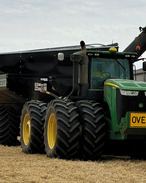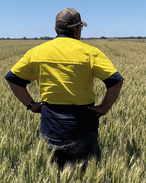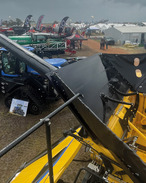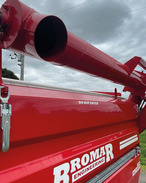This article is 7 years old. Images might not display.
It’s hoped this information will help producers make better decisions around how to fill the feed gap in their production systems with a cost-effective, quality ration.
CSU Bachelor of Animal Science (Honours) student Ms Emma Lynch says as pasture growth and quality can be variable throughout the year, supplementary feeding in a grass-fed production system is one way producers can meet carcass specifications.
"The canola meal we have used is a by-product of oil production and in recent years it's been a cheaper option than the pellets producers often use to supplementary feed their cattle,” she explains.
"There is an increasing demand for grass-fed beef that complies with the Pasture Fed Cattle Assurance System (PCAS). The advantage of using canola meal, rather than supplementary feeding with a traditional finishing grain diet, is that producers can still meet the PCAS guidelines."
The 60-day trial saw 20 steers fed a supplementary ration of canola meal and another 20 steers fed pellets.
"The steers were weighed every 14 days to compare growth rates and we also collected samples to study the fatty acids in the blood, in particular Omega-3," Ms Lynch said.
"At the end of the trial the steers were slaughtered and we will be assessing the meat quality along with the fatty acid composition of the carcass. The fatty acid data, in particular the amount of omega-3, will provide valuable information that will link with other projects examining human health attributes of meat.
"The study will also provide useful information for processors about how canola meal influences the carcass traits of grass-fed beef cattle."
Ms Lynch presented her research last Friday (4th August) at the Graham Centre for Agricultural Innovation's annual beef forum in Wagga Wagga.
The Graham Centre is a research alliance between CSU and the NSW Department of Primary Industries.
The research is supported by a Graham Centre Honours Scholarship and supervised by lecturer in farming systems Mr Michael Campbell from CSU's School of Animal and Veterinary Sciences and NSW Department of Primary Industries (DPI) livestock research officer Dr Edward Clayton.






















